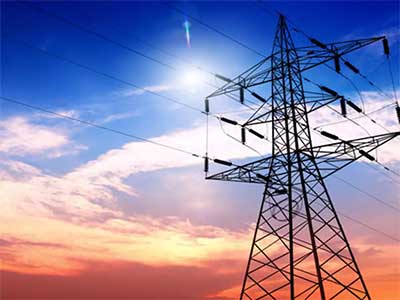Daily-current-affairs
/
09 Nov 2020
Energy Conservation (EC) Act, 2001 : Daily Current Affairs

Energy Conservation (EC) Act, 2001
Why in NEWS ?
- Ministry of Power mandates all DISCOMs to comply Energy Conservation (EC) Act , 2001
About
- The Ministry of Power issued notification to cover all the Electricity Distribution
Companies (DISCOMs) under the preview of the EC Act.
- As per the notification, which was formulated in consultation with Bureau of Energy
Efficiency (BEE)- "All entities having issued distribution license by State/Joint
Electricity Regulatory Commission under the Electricity Act, 2003 (36 of 2003)" are
notified as Designated Consumers (DCs).
- After this notification, all the DISCOMs will be governed under the various provisions
of EC Act, such as Appointment of Energy Manager, Energy Accounting & Auditing,
identification of Energy Losses Category wise, Implementation of energy
conservation & efficiency measures etc. for each DISCOMs.
- Earlier, the DISCOMs whose annual energy losses were equal to or above 1000 MU
were only covered as DCs. Now with this notification, the number of DISCOMs
covered under the EC Act will increase from 44 to 102.
- This decision will facilitate Energy Accounting & Auditing as mandatory activity for all
the DISCOMs, leading to the actions towards reducing losses and increase
profitability of DISCOMs.
Significance of the Amendment
- The amendment is expected to help DISCOMs to monitor their performance
parameters and bring in transparency in the Distribution sector through professional
inputs.
- It will also assist in developing projects for reducing the electricity losses by DISCOMs
and implementing effective solutions.
- The amendment is expected to improve the financial state of the DISCOMs.
- The quarterly data of these DISCOMs will be collected and monitored by the
government to suggest measures for increasing the efficiency and reduce the energy
loss.
- This move is expected to gradually become more effective if extended upto the level
of end consumers.
What is DisCom ?
- Discom stands for ‘Distribution Company’.
- Meaning companies are not generating electricity themselves, rather purchasing it
from someone else and just supplying to the final consumers.
- Discoms are the companies that are responsible for the distribution of the electricity
to the consumers.
- Usually the term is used with power distribution companies run by central and state
governments.
- Electricity is a concurrent list subject at Entry 38 in List III of the seventh Schedule of
the Constitution of India. Both the central government and India's state
governments are involved in establishing policy and laws for its electricity sector.
- The Ministry of Power is India's apex central government body regulating the
electrical energy sector in India.
- Distribution Companies (DisComs) have been called the lynchpin(backbone) but also
the weakest link in the electricity chain.
Bureau of Energy Efficiency
- Bureau of Energy Efficiency (BEE) is a statutory body under the Ministry of Power,
Government of India.
- It assists in developing policies and strategies with the primary objective of reducing
the energy intensity of the Indian economy.
- BEE coordinates with designated consumers, designated agencies, and other
organization to identify and utilize the existing resources and infrastructure, in
performing the functions assigned to it under the EC Act.
Energy Conservation Act
- Considering the vast potential of energy savings and benefits of energy efficiency,
the Government of India enacted the Energy Conservation Act, 2001 (52 of 2001).
- The Act provides for the legal framework, institutional arrangement and a regulatory
mechanism at the Central and State level to embark upon energy efficiency drive in
the country.
- Five major provisions of EC Act relate to Designated Consumers, Standard and
Labelling of Appliances, Energy Conservation Building Codes, Creation of Institutional
Set up (BEE) and Establishment of Energy Conservation Fund.
- The Energy Conservation Act became effective from 1st March, 2002 and Bureau of
Energy Efficiency (BEE) operationalized from 1st March, 2002.
- Energy efficiency institutional practices and programs in India are now mainly being
guided through various voluntary and mandatory provisions of the Energy
Conservation Act.
- The EC Act was amended in 2010 and the main amendments of the Act are given
below:
- The Central Government may issue the energy savings certificate to the
designated consumer whose energy consumption is less than the prescribed
norms and standards in accordance with the procedure as may be prescribed.
- The designated consumer whose energy consumption is more than the
prescribed norms and standards shall be entitled to purchase the energy savings
certificate to comply with the prescribed norms and standards.
- The Central Government may, in consultation with the Bureau, prescribe the
value of per metric ton of oil equivalent of energy consumed.
- Commercial buildings which are having a connected load of 100 kW or contract
demand of 120 kVA and above come under the purview of ECBC under EC Act.







